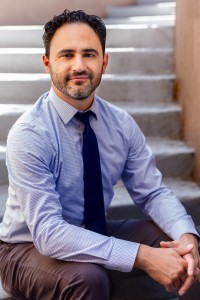
September 20, 2021
In homes across New Mexico, parents and caregivers have long been forced to make an impossible choice – one made even harder in the last 18 months by COVID-19. Do I care for my baby or sick family member, or do I leave them to work and earn the pay we need to survive? This choice has dire implications for babies, families, public health, and the economy.
In the early months of the pandemic, Congress passed emergency paid leave measures, recognizing the important implications that paid leave has on public health. While a sign of progress, those measures were only temporary. Permanent paid family leave is not only beneficial to all — whether it’s to take care of oneself, a family member with a chronic health condition or one who’s had surgery – it’s extremely important for growing families. Researchers estimate that providing 12 weeks of job-protected paid leave in the U.S. would result in nearly 600 fewer infant and post-neonatal deaths per year. Paid leave is also shown to improve maternal mental health and foster better child-parent relationships. It provides parents the time they need to breastfeed, attend well-child doctor visits, and ensure their newborn receives all necessary immunizations – all of which have long-lasting benefits for their children’s health.
Working parents do their best to make sure that their babies get the essential love and care they need in the first months of life. But we know that offering families time off to give children a healthy start in life, without risking financial security, is critical for a healthy work environment, a healthy home environment, and, ultimately, a healthy economy.
We also know that one of the disparities created by structural racism is that families of color are less likely to have the means to build the savings needed to allow them to take unpaid time off to cope with family events or illness. Thus, the lack of a paid leave policy disproportionately impacts families and babies of color, which may be one reason infant mortality rates for Black babies is almost twice the national average for babies of all races. As paid leave is known to decrease infant mortality, comprehensive paid leave policies are an important step not just in ensuring more equitable opportunities for family bonding and financial security after a child’s birth, but also in preventing infant deaths.
New Mexico recently made significant progress in protecting workers’ economic stability and public health by enacting employer-sponsored earned sick leave for all private-sector workers. This policy will benefit more than 235,000 workers in the state, 176,000 of them workers of color, and most of them women. But while earned sick leave will provide crucial economic and health benefits for working families for short-term illnesses and emergencies, 81% of working people in the U.S. do not have access to longer-term paid family leave through their employers. This is particularly concerning not only because of the crucial benefits for children’s health, but also because the policy has significant benefits for employers, including reducing staff turnover and the subsequent costs associated with training and hiring new staff. Currently, only nine states and the District of Columbia have passed state paid leave policies. So, while where you work used to be the primary determining factor in whether you had access to this crucial support, where you live is now also a factor.
We clearly have a lot yet to do when it comes to supporting our state’s families and children. With New Mexico’s high rate of working poor, adverse childhood experiences, and poor child outcomes, a comprehensive paid family medical leave program would be of great benefit to our state. Paid leave is a proven engine of economic stability and growth that gives today’s workers and our future workforce – their babies – the best chance for success. Now is the time for our policymakers to put New Mexico’s working families first and enact a sensible paid family and medical leave program that benefits all families.
Jacob Vigil, MSW, is a Research and Policy Analyst with New Mexico Voices for Children.
